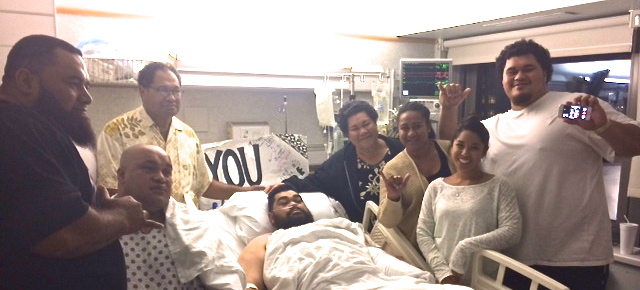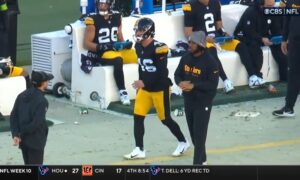You may recall the name of Chris Kemoeatu if you have been following the Pittsburgh Steelers for more than a small handful of seasons by now. the Samoan offensive guard was drafted by the Steelers in the sixth round of the 2005 draft and played seven seasons with the team before he was forced into retirement.
At the time, it was widely reported that he was suffering serious knee issues, which had plagued him over the last few seasons of his career, and most speculated that that was the cause of his early retirement at the age of 29 following his release. But as we later found out, it stemmed from a life-long kidney issue that his years in the NFL had exacerbated.
Or more specifically, his years with the Steelers. But first some background.
After Kemoeatu’s retirement, his kidney situation had grown severe, and ultimately became life-threatening. By the end, it had claimed two NFL careers. Chris’ older brother, Ma’ake Kemoeatu, at the time a defensive tackle with the Super Bowl-winning Ravens, retired himself in part to be able to provide Chris with his kidney after he had become in need of a transplant.
The surgery happened in August 2014, but it will have life-long implications for both brothers, each of whom now have only one properly functioning kidney. Both Chris and Ma’ake will spend the rest of their lives on medication and requiring monitoring because of their weakened system as a result of having only one of a pair of functioning kidneys.
A year and a half later, Chris Kemoeatu is naturally doing better now than at the time, but now he is seeking damages for what he believes was an unnecessary acceleration and aggravation of his kidney disease, which he fairly ascertains that the Steelers were aware of, given the ample physicals that he had undergone both before and after they drafted him.
Throughout his seven-year career, Kemoeatu got by through the physical tribulations of the game by receiving regular shots of an anti-inflammatory drug called Toradol, which is known to have side effects for the renal arteries, which pump blood to the kidneys.
Kemoeatu believes that the years of irresponsible anti-inflammatory injections is the cause of his life-threatening trauma, exacerbating a protein leak in his kidney that he had since his youth, which is something that would be revealed through routine blood work, an inevitability for any professional football player.
He has retained an attorney and is in the process of suing the organization for their willful negligence in his care, arguing that the team’s medical staff would have been fully aware of the long-term health implications of the Toradol injections without ever properly explaining this to him.
I am not and will not pretend to be qualified to speak on this matter outside of stating the facts of the case as presented, but I imagine that the suit will be handled rather quietly.
Regardless of any culpability for either party, it at least serves as a reminder of how personal health can be overridden because of outside interests both for the individual and for the group. You can never count on anybody else to put your own health above everything else, so you had better do so yourself.








